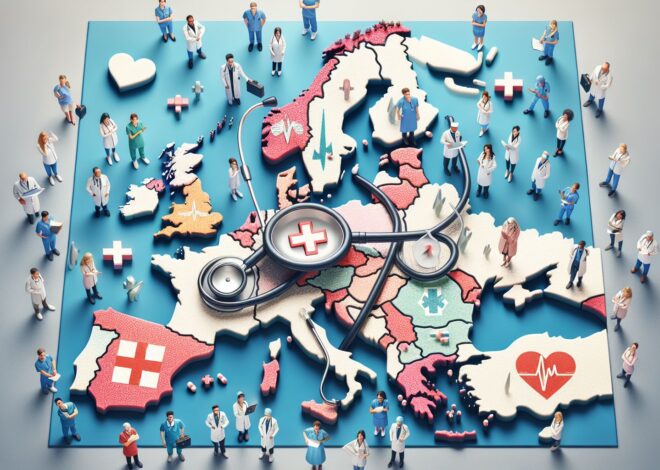
**The Preparedness and Response of European Health Systems**
The outbreak of the COVID-19 pandemic has highlighted the crucial role of health systems around the world, including the European health systems. The unprecedented challenges posed by this global health crisis have called for a robust preparedness and response plan to mitigate the impact on citizens and the healthcare industry. In this blog post, we will examine how European health systems have fared in terms of preparedness and response, addressing health professionals, policymakers, and concerned citizens.
Introduction: The Gravity of the Situation
The emergence of COVID-19 as a global pandemic caught the world off guard. Health systems worldwide faced immense pressure to respond adequately to the rapidly spreading virus. In this context, the preparedness of European health systems played a pivotal role in determining the efficacy of their response.
The Preparedness of European Health Systems
European health systems have a long history of effective preventive measures and a robust healthcare infrastructure. Many countries in Europe had plans in place to respond to public health emergencies. These plans included surveillance and early warning systems, stockpiling of essential medical supplies, and clear guidelines for healthcare professionals.
Furthermore, European health systems focus on primary healthcare, which enhances community-based prevention and preparedness. The presence of well-trained primary care providers, community health centers, and easily accessible healthcare facilities laid a solid foundation for facing the crisis head-on.
Response of European Health Systems
Despite the challenges posed by the COVID-19 pandemic, European health systems have displayed commendable response strategies. Authorities promptly implemented strict public health measures such as testing, contact tracing, and quarantine protocols. These actions aimed to slow down the transmission of the virus and protect vulnerable populations.
European health systems also relied on well-established communication networks to disseminate accurate and timely information to the public, empowering citizens to protect themselves and others. By organizing public awareness campaigns and leveraging digital platforms, health professionals and policymakers were able to convey vital information effectively.
Challenges Faced and Lessons Learned
While the response of European health systems has been commendable, challenges were inevitable. The shortage of personal protective equipment (PPE) and the strain on healthcare facilities posed significant obstacles in the early stages of the pandemic. However, these challenges led to valuable lessons for the future.
The importance of investing in healthcare infrastructure, including the manufacturing and stockpiling of essential medical supplies, became apparent. European health systems recognized the necessity of ensuring sufficient capacity in intensive care units and enhancing the resilience of healthcare workforce. Policymakers and professionals must take note of these shortcomings and prioritize these areas to prepare for future health emergencies.
Collaboration and Solidarity Among European Health Systems
The COVID-19 crisis demonstrated the significance of collaboration and solidarity among European health systems. Several initiatives were launched to share experiences, knowledge, and resources across borders. The European Union facilitated cooperation between member states, encouraging a unified response and the exchange of best practices.
Health professionals played a vital role in this collaboration, exchanging information, treatment protocols, and research findings. Policymakers encouraged open communication and coordination among countries to optimize the response strategies and share the burden of the pandemic collectively.
Conclusion: A Continuous Journey Towards Preparedness
The COVID-19 pandemic represented an unprecedented challenge for European health systems, requiring efficient preparedness and response strategies. While no system is perfect, European health systems demonstrated robustness in dealing with the crisis, emphasizing the importance of preparedness, response, and collaboration.
Policymakers must take this opportunity to reflect on the weaknesses exposed by the pandemic and invest in the necessary resources to strengthen healthcare infrastructure. Health professionals should continuously update their knowledge and skills to face future challenges effectively.
The journey towards preparedness is ongoing, with continuous learning and adaptation being the key. By working together, European health systems can build a future where health emergencies are met with confidence and resilience, protecting the well-being of citizens and the sustainability of healthcare systems.



